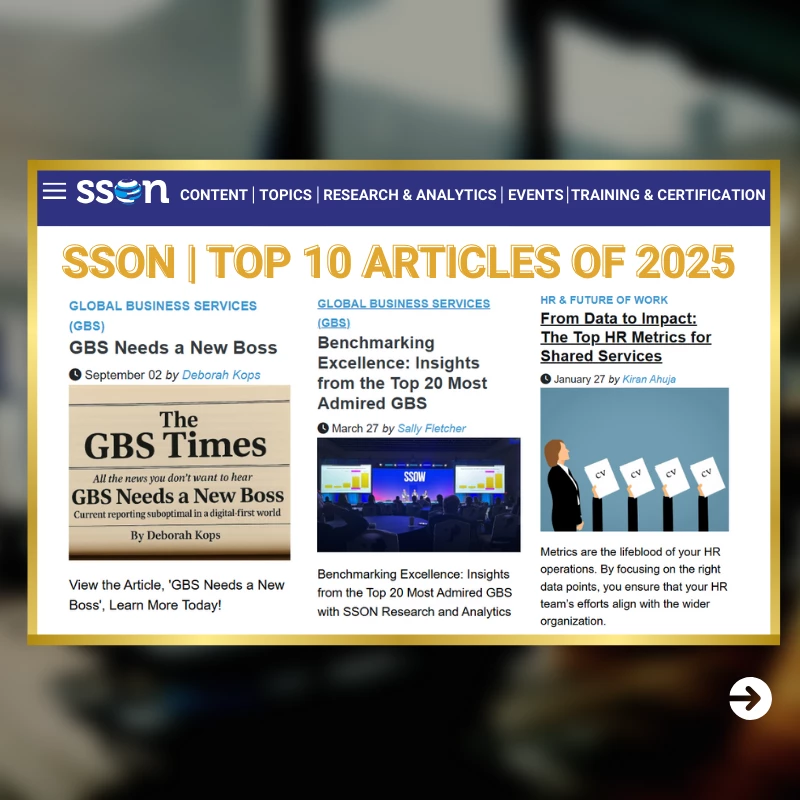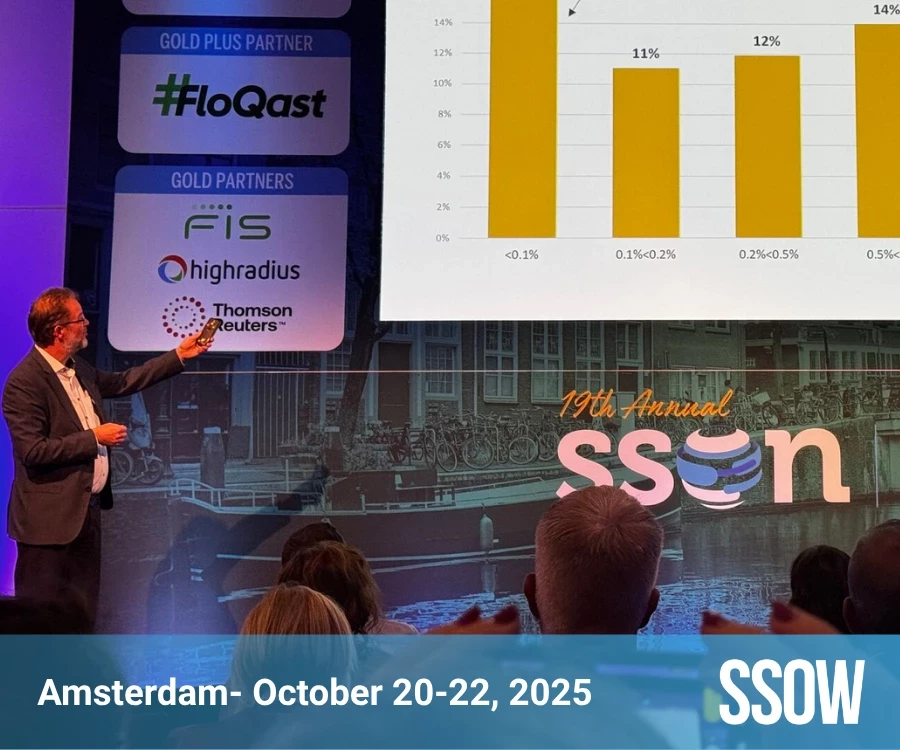
The previous article, The Shared Services Battle: Competing Smart With Portfolio Management and Product/Service Lifecycle Management, was about why shared service organizations (SSO) and Global Business Services (GBS) should leverage portfolio management and product & service lifecycle management to maintain a competitive edge. In this new article, the objective is to deep dive into business models of SSOs/ GBS environments, in areas like finance, accounting, HR, sales, and more. The business model perspective is essential to be able to shape the portfolio.
We should look at a tangible example to illustrate the following perspective on business models by focusing on a common business operation - invoice processing. Though it might seem straightforward, the reality is that invoice processing is a multifaceted process with more complexities than one might initially think.

A potential journey through invoice processing within the Accounts Payable (AP) domain could look something like this:
- Consulting Service: Assessment of current process(es), digital capabilities, and organizational structure.
- Managed Service: Takeover of ad-hoc services, a move often referred to as "lift-drop."
- Consulting Service: Process (re-)design, including the implementation of new strategies and the management of change within the organization.
- Digital Enablement (multiple models feasible): Introduction of new tools to digitize and automate the process including integration into existing platforms or ERP systems.
- Software-based Managed Service: Exploitation of standardized and automated processes, which unlocks the ability to explore new areas of value creation like data-driven decision-making (this seems like another buzzword that we can cover in a different article 😎).
Thus, even a seemingly simple process such as invoice processing can undergo a series of business models to deliver value.
Drumroll, please! Once more with feeling: Business models are the lifeblood of how SSOs deliver value, maintain operations, and generate profits. They are the blueprint that informs the product and service portfolio and lifecycle management strategies. A well-structured business model can enhance competitiveness, profitability, and sustainability, among other key performance indicators. In the following sections, you can explore the various types of business models, how to choose the right one for your SSO, and how to align it with your portfolio management and product/service lifecycle management strategies.
Relevant Business Models for GBS
Differentiating between different business models is crucial in GBS as they provide a framework for how revenue, profit, or value-add is generated. The applied business model defines the value proposition for delivery. It helps to identify customer needs and outlines the key activities and resources required to deliver the value proposition. This way, it is possible to shape a GBS portfolio towards enhanced value delivery based on a long-term transformation strategy.
The suggested approach to classifying GBS-relevant business models is not exhaustive, yet typically covers a big share within a GBS portfolio.

|
Category |
Business model |
Short definition |
|
Consulting services |
Leveraging expertise to help customers with technology and methodology strategies. |
|
| Solution enablement |
Engineering |
Designing and implementing solutions in various engineering fields. |
|
|
Project management |
Applying skills and tools to plan, execute, and close projects within time, budget, and quality limits. |
|
|
Software development |
Creating and developing software applications of any size. |
|
Digital enablement |
Software customizing |
Modifying existing software to meet specific business requirements. |
|
|
Software implementation |
Installing and setting up existing software for business use, including typically also integration. |
|
|
Software as a service |
Delivering and managing software remotely, often via subscription or pay-per-use models. |
|
Digital service operations |
Maintenance & operations |
Ongoing tasks to keep software systems running smoothly, often under maintenance contracts. |
|
|
It-support / service desk services |
Providing immediate assistance for IT-related issues. |
|
|
Software-based managed service |
Managing business processes on provider's systems with defined performance metrics. |
|
Business process services |
Managed service |
Managing business processes on customer’s systems, often without adjusting existing systems. |
|
|
Support and admin services |
Outsourcing administrative tasks while retaining management control, similar to employee leasing. |
Ways of Defining a Portfolio Strategy
Portfolio management without a clear strategy is like playing football without knowing which goal to play towards. It can be fun to play, but after running back and forth without a destination you lose your motivation and focus on being competitive.
“There is nothing so useless as doing efficiently that which should not be done at all.” (Peter Drucker)
Yes, GBS portfolio management and the definition of a strategy is more complex than having one direction. Legacy portfolio elements, and a reactive portfolio approach from the past, hinder GBS entities from doing it right on their terms. Additionally, the multitude of trends and customer demands require GBS organizations to be ambidextrous, to look backward, attending to the products and processes of the past, while also gazing forward, preparing for the innovations that will define the future. That sounds like the need to do it all and that is exactly the wrong way of defining a portfolio strategy. Knowing what to reduce or where to invest is important.
You shall focus on digital-enabled business models
As the engine room of service delivery, a GBS organization has access to data that can unlock insights and drive business transformation. Furthermore, leaders who navigate the transformation from traditional to digital-enabled models enable their organizations to:
- Flexibly adjust to customer needs, with customizable service modules.
- Compete in unprecedented ways and achieve value creation.
- Scale and deliver services with less additional effort through digital automation or by leveraging an ecosystem of providers.
- Make data-driven decisions and prioritizations towards competitiveness.
- Focus on activities with expertise-driven services and being ready to go beyond the traditional GBS core business.

Potential Value-Creation with Different Business Models
GBS organizations rely traditionally on the concept of a managed service, where professionals operate on customer systems. A digital-enabled model leverages technology and people toward next-generation services with standardized modules, workflows, and data-driven automation capabilities. As so often, it sounds easy in theory. Yet, going into details will go beyond the scope of this paper. We leave you only with the following remark: to be ready to provide digital-enabled business models, a lot of effort and resources need to be shifted to digital capabilities. Capabilities around the future-ready IT landscape and enterprise architecture are more important now than ever for GBS. Realizing the full potential of technology requires a balance between making or buying decisions towards rapidly changing digital solutions. Leading GBS organizations have already started to lay the fundamentals for their IT landscape to integrate their solutions with 3rd party offerings.
Existing trends towards an end-to-end perspective on process and service delivery will remain a significant orientation factor for future SSO and GBS setups. Yet, additional business model perspectives will gain more and more relevance on the journey toward digital-enabled and value-adding organizations.
To hear more insights from Siemens, be sure to attend SSON's Shared Services & Outsourcing Week London. This year, we have turbocharged our programme, injecting innovation into every aspect—be it formats, themes, topics or speakers. You don’t want to miss out on this opportunity to elevate your shared services game!



































